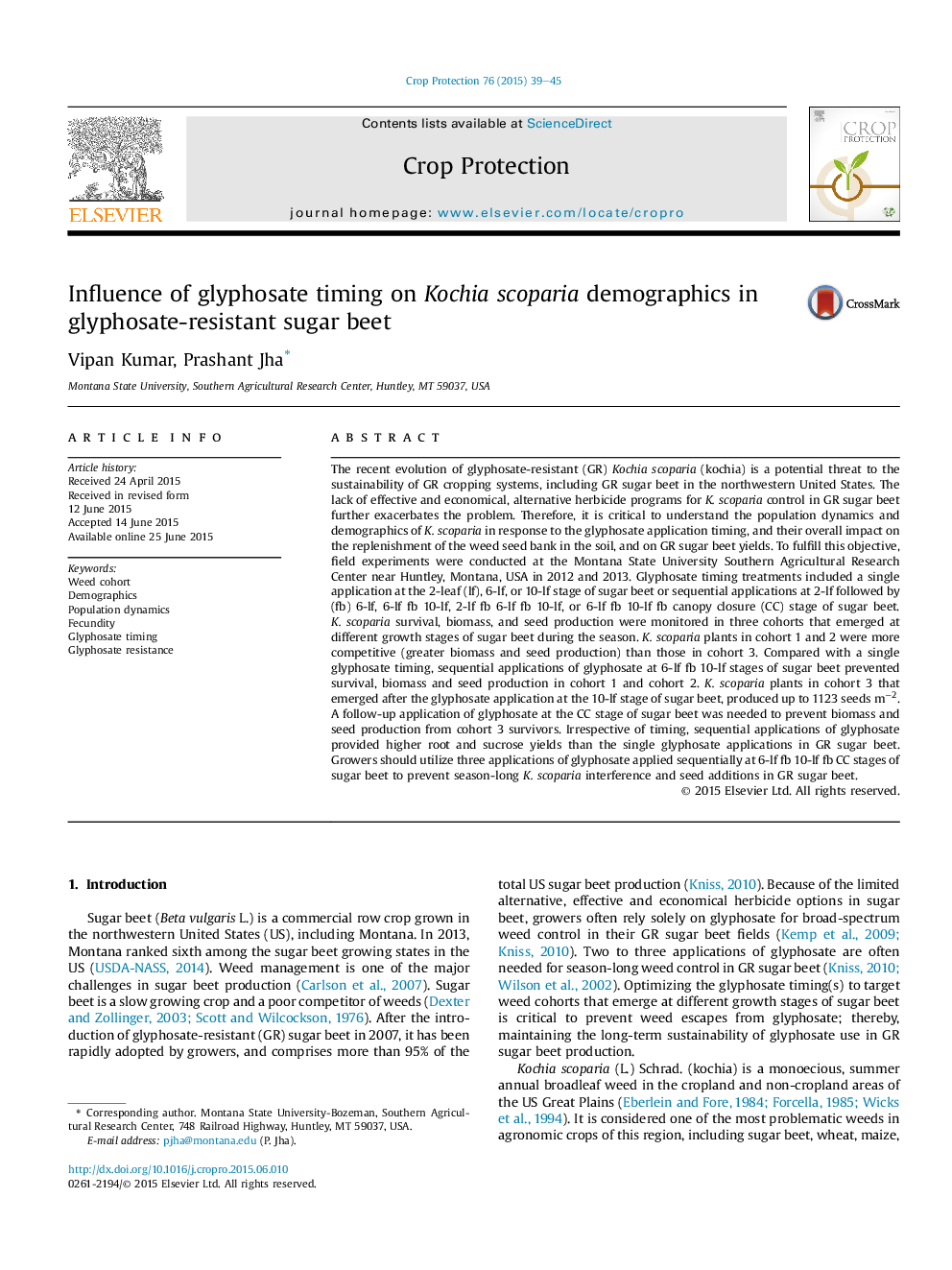| Article ID | Journal | Published Year | Pages | File Type |
|---|---|---|---|---|
| 6373384 | Crop Protection | 2015 | 7 Pages |
Abstract
The recent evolution of glyphosate-resistant (GR) Kochia scoparia (kochia) is a potential threat to the sustainability of GR cropping systems, including GR sugar beet in the northwestern United States. The lack of effective and economical, alternative herbicide programs for K. scoparia control in GR sugar beet further exacerbates the problem. Therefore, it is critical to understand the population dynamics and demographics of K. scoparia in response to the glyphosate application timing, and their overall impact on the replenishment of the weed seed bank in the soil, and on GR sugar beet yields. To fulfill this objective, field experiments were conducted at the Montana State University Southern Agricultural Research Center near Huntley, Montana, USA in 2012 and 2013. Glyphosate timing treatments included a single application at the 2-leaf (lf), 6-lf, or 10-lf stage of sugar beet or sequential applications at 2-lf followed by (fb) 6-lf, 6-lf fb 10-lf, 2-lf fb 6-lf fb 10-lf, or 6-lf fb 10-lf fb canopy closure (CC) stage of sugar beet. K. scoparia survival, biomass, and seed production were monitored in three cohorts that emerged at different growth stages of sugar beet during the season. K. scoparia plants in cohort 1 and 2 were more competitive (greater biomass and seed production) than those in cohort 3. Compared with a single glyphosate timing, sequential applications of glyphosate at 6-lf fb 10-lf stages of sugar beet prevented survival, biomass and seed production in cohort 1 and cohort 2. K. scoparia plants in cohort 3 that emerged after the glyphosate application at the 10-lf stage of sugar beet, produced up to 1123 seeds mâ2. A follow-up application of glyphosate at the CC stage of sugar beet was needed to prevent biomass and seed production from cohort 3 survivors. Irrespective of timing, sequential applications of glyphosate provided higher root and sucrose yields than the single glyphosate applications in GR sugar beet. Growers should utilize three applications of glyphosate applied sequentially at 6-lf fb 10-lf fb CC stages of sugar beet to prevent season-long K. scoparia interference and seed additions in GR sugar beet.
Related Topics
Life Sciences
Agricultural and Biological Sciences
Agronomy and Crop Science
Authors
Vipan Kumar, Prashant Jha,
